Film music supervisor Tarquin Gotch talks John Hughes, Kelly LeBrock and Kate Bush
John Hughes Mixtapes box set out today
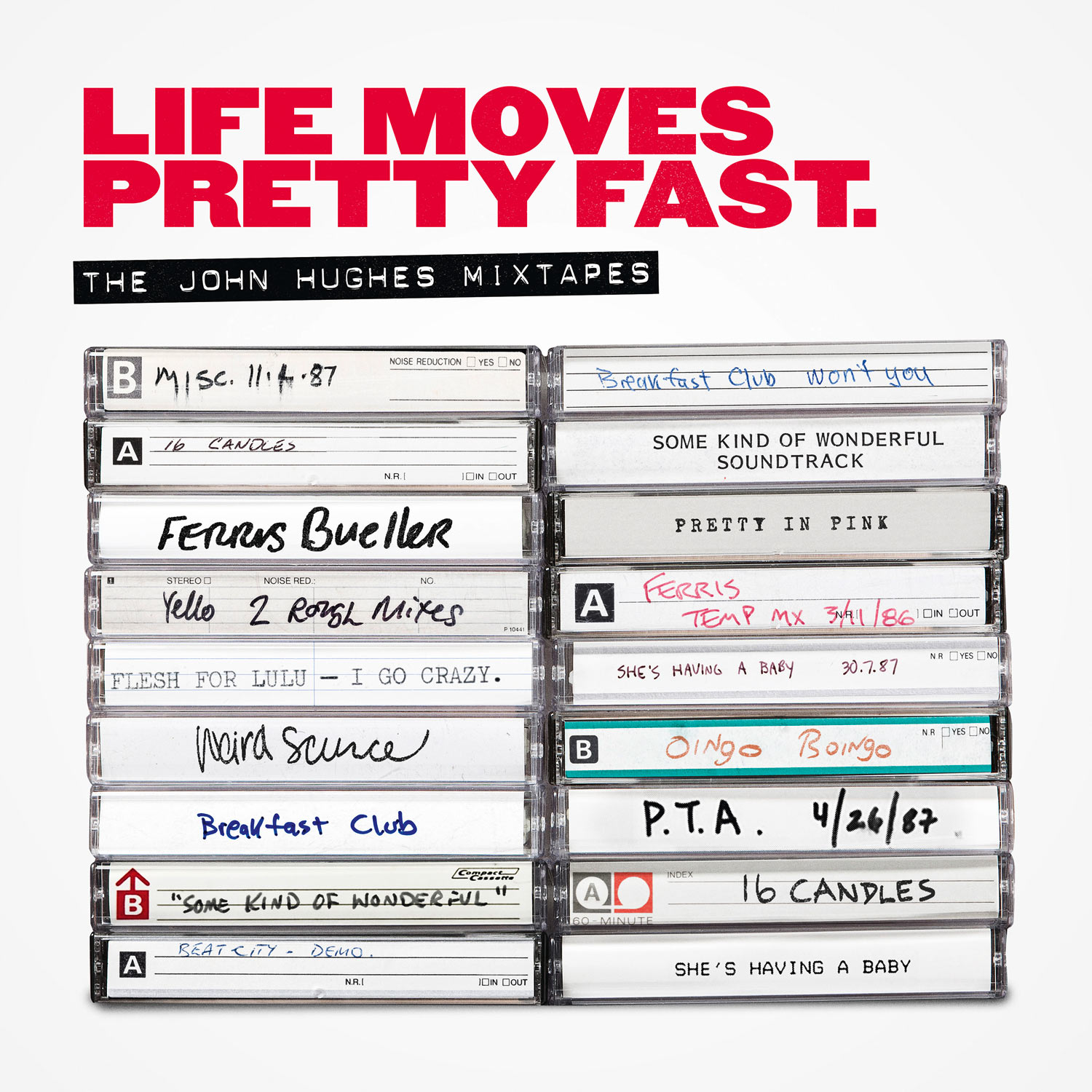
Life Moves Pretty Fast: The John Hughes Mixtapes is the first official compilation of music from the movies of John Hughes 1983-1989. Curated by Hughes music supervisor Tarquin Gotch these 4CD and 6LP box sets include a diverse array of music including tracks from Simple Minds, OMD, The Dream Academy, Kate Bush, New Order, The Beat, The Jesus and Mary Chain, Yello, Book of Love, Lindsey Buckingham and many more.
Gotch spoke to SDE recently about life in the 1980s working with Hughes and the challenges and satisfaction of pairing music with pictures…
SDE: You must be very pleased to be involved in this Life Moves Pretty Fast project because it brings everything together.
Tarquin Gotch: Indeed. I’m very proud of it. And it’s taken literally years, many years. We’ve been working on it specifically for about three years. It took me a while to realise that when you look at the body of John’s teen films it was an interesting subject… him as a filmmaker and as somebody that used music as he did. So I thought it was a worthy subject. The next step was to make sure that the estate was happy. And that meant, building up trust by making sure they were across absolutely everything we did. The ambition was to do the definitive collection, and I think we’ve got 95 percent there. I am very frustrated that there are certain tracks that I can’t have. Tracks like Sixteen Candles by the Stray Cats. I signed the Stray Cats, I’m immensely proud of them and it was so clever of John to have them do that, so early in their career and in his career. But the deals that were done in those days were if you commissioned the work from a band, the film company owned the master for use in the film. And any other use was sort of left and unspoken. So you go to the film company say, “Well, we don’t want it to use in the film, obviously, we want to use it on this compilation”. They say: “We don’t have that right”. So we go to all the rights owners of The Stray Cats and say can we use it in this way and they say “We haven’t got that right”. Nobody has that right!? So I go to [Stray Cats drummer] Slim Jim [Phantom]. Jim is a wonderful man who I know personally. He says “Oh, yeah. We’d be fine [with it]”. Not enough! Not enough for the BBC [who own Demon Music]… So that happened on a few tracks, and it was very frustrating. There were other ones like ‘Apron Strings’ by Everything But The Girl where the band just said no, sadly.
You were the music supervisor on many of John Hughes films. Could you explain what the role of a music supervisor is on a film?
Anything to do with music falls on the music supervisor’s desk. From finding the composer, doing the deals for the composer, making sure the composer knows what is wanted. Most directors have a fairly intimate relationship with their composer and talk directly. You don’t need the music supervisor [for that]. But when it comes to licensing in tracks or creating tracks, then the director turns to the music supervisor and says “here you go”. And that’s a pretty personal relationship. I’ve done other stuff – I was on the first series of The Wonder Years and I did a Tom Waits film, blah blah blah… but I was very much a John Hughes guy.
John Hughes was an Anglophile. He loved everything English
Tarquin Gotch
The reason why I worked well for John was because he was an anglophile. He loved everything English, because when he was in high school, the way that he marked out his otherness was by being on the case in terms of hip music. And at that time, that meant being across English imports. It started, I believe, with The Beatles, when he got the import version of Revolver. And so when I met John, which was he was directing Weird Science and in post production on Pretty in Pink, the internet wasn’t there and you couldn’t just get music at the drop of the hat. Nobody was doing instrumental versions… so as an ex-A&R man out of the UK, I had access to tracks that he couldn’t find anywhere else. I look back and I realise just how sweet and great he was, to put so many of my bands in his films. But you can turn that around and go, because I had those bands and could give him instrumental versions, demos, TV versions with no vocal… whatever, it was a two-way street.
You had been an A&R man for Arista and then WEA, so you had all that background and knowledge of working with artists.
Correct. So I had access to a lot of the UK music business. The only other band in The Breakfast Club really is Wang Chung and I signed them. With Arista, it was tricky, because Clive Davis would never take any of my groups for America. So was a frustrated A&R man, Paul. And now I’m a frustrated old man!
Apparently, Kelly LeBrock was was your introduction to John Hughes. How did you know her?
[Laughs] Am I lucky guy or what? I mean, Kelly LeBrock in Weird Science… God dammit! I knew her from London because she grew up here. In fact, she went to school here in Lewes, she has told me since. So I was lurking about with her, flirting away like mad and having lots of fun. She was this sort of wild model and I was a late night A&R man, so the two lifestyles really worked and she very kindly invited me out to stay with her. She was married to Victor Drai, the producer of The Woman in Red and she was filming Weird Science and said “come to the set”. I got talking to John and I got the job! She now claims it was a well thought out plan by her, and it may well have been. Frankly, whatever Kelly says is in good in my books.
You mentioned earlier about composers. There were scores in John’s films, but no one ever really remembers that, they remember all the pop music. What was what was it about pop music that John Hughes was so enamoured with?
Ira Newborn, who was his ‘go to’ composer by and large, was just this wonderful man. Very funny, very self-effacing, and he called himself the king of the ‘stings’. Because John would have him score the whole film, and then John would fill it up with all these tracks. Why did John do that? I think it’s because directors love choices, above all. That’s why they do lots of takes and John was famous for doing that. And there are stories throughout his career of him just wanting to try different music against picture and watch what it does.
Directors love choices, above all. That’s why they do lots of takes and John was famous for doing that
Tarquin Gotch
And we would spend all night doing that. And sometimes you’d find something – I’m going to say Yello at the end of Ferris Bueller – and you go “fuck me, that is great!” And John would say, “Yeah, but let’s try some opera..” What? I mean, he would just keep going, and then double-back and go “Alright, yeah, Yello”.
How did the process work? Did he always wait until filming was completed before looking at different music?
No. He’d send the script to me. And of course, he was the first director I’ve ever worked with, so I didn’t know that scripts weren’t always that good. The first script I read was, I don’t know, Pretty in Pink, and you’re like, “that’s pretty good”. I think one of the reasons I worked well with him was because I was in the UK, so there was a time difference. He loved to talk on the phone: cigarette, coffee, talk! So he sent me the script, we’d talk about it, and we’d start sending music to him. Then as he started shooting we’d get VHS tapes of the scenes that he knew he wanted music for, and we’d get little instructions: “I want it sad”, “I want it romantic”, “I want it introspective”, “I want it exuberant”… and then we’d send more music to him. As the scenes got edited, you would narrow it down and it would become much more specific. But I would turn up at his house with bags of ideas. And that’s what they want – choice.
So you were backwards and forwards to America a fair amount?
I lived on planes a lot, in those days. I lived in both LA and London. I had a house in London and rented a place in LA. It was before they realised that planes had to be full and you could often lie down on the seats. Those days are long gone.
Were the artists involved aware of the commercial benefits of having their song played in movies?
Yes. I mean, obviously, nobody was immune to the fact that ‘Don’t You Forget About Me’ had gone to number one. Nobody was immune to the fact that three artists out of Pretty in Pink really were launched by that film. I’m thinking Psychedelic Furs, OMD, and Suzanne Vega. So that had become apparent. On the downside. There was still a big feeling at that time from groups like Pink Floyd, Led Zeppelin and The Beatles that no, no, we don’t do that. We don’t licence our music. It is art and it has to be enjoyed in the way that we intended it to be consumed, not just added on to somebody else’s thing. Very valid. But you had you had that going on.
You talked about licencing problems all these years later for this boxset, but you clearly still would have had problems at the time. And the story I want to pick up on is the one about This Mortal Coil, and She’s Having A Baby which I found really interesting, because everyone’s so familiar with the Kate Bush song from that film, but it could well have been something else completely.
It could have been This Mortal Coil’s ‘Song to the Siren’, and it was great. And it had an eerie vagueness to it that was really good. But, boy, did they do us a favour [by saying no]. Despite the obvious commercial advantages of giving your music to a film, not to mention the money, a lot of groups were rather sneery about John Hughes films. It wasn’t Fellini, it wasn’t Jean Luc Goddard, it was this sort of white, middle class, Capra-like material, which it was absolutely their prerogative to not want to embrace. And This Mortal Coil was a case in point.
You have to grudgingly admire them because it sounded like a lot of money was being thrown at them, yet they were still saying no…
Yes, it was. The one time that throwing money at it worked was with The Beatles and ‘Twist and Shout’ in Ferris Bueller. Money!
Money. That’s what I want!
And it worked. John was a huge Beatles fan. I mean, they were Gods to him. And then Paul McCartney made this understandably, slightly narky remark about us having added brass to the song, which we did, because in the scene in Ferris, in the parade, you can see brass players, so we just added it. And then we got this letter from some lawyers and Paul later made that comment.
Continuing on with the She’s Having A Baby thing then… Kate Bush has this reputation, especially these days, of taking 10 years to make an album. So how did you manage to get her to write and record a song in a relatively short space of time? And how did you know her in the first place?
My lawyer introduced me, I went down, we smoked joints, we got smashed, and it all just seemed to go perfectly. And it wasn’t slow. I think for her, the fact that John gave her a whole segment and said “here you go” and she was writing to picture. I hope I’m not doing her a disservice, but it may have been the first time that she did that. And that’s a creative challenge that I think probably stimulated her. You know, it’s, it’s easier than a blank canvas, I’m going to humbly suggest.
So when she came back to you, did she basically give you a finished product and say, “that’s it”?
Yes.
What did you think when you first heard it?
I can’t tell you the relief. The utter, utter relief when John said, “Oh my God, that’s brilliant”. And he extended the segment to cover the whole song because it was so bloody good. But what I’m missing out of that is that you’ve just got deadlines bearing down on you. And, you know, I’ve stopped working on features films really because the pressure of those deadlines is just unforgiving.
Was there any ever any pressure for the artists to release a song as a single to promote the film? Because the Kate Bush one was interesting in that she waited until the end of 1989 when The Sensual World had come out, and it was the second single from that album. But of course, if she had released it as a single with clips from the film in the video, at that time [1988], it would have helped the film and her, probably.
She did not give us the right to use it as a single. I think she was protecting her own schedule and you’re absolutely right. It wasn’t John’s most successful movie, obviously, and the fact that that track sort of creeped out… It is something that’s grown in stature over the years..
One of the things that’s quite interesting is that some of these films didn’t get a soundtrack album at the time. So Ferris Bueller’s Day Off is the obvious example of that. When pop music is such an important part of those films, why why wasn’t there a soundtrack? I
It’s one of the great mysteries, and I’m afraid I don’t have the definitive answer. I have theories. John’s public position was that the music is too diverse. It wouldn’t make a cohesive soundtrack. But that’s not logical; it doesn’t really makes sense. He had a very creative and close relationship with the music executive at A&M called David Anderle. He’d seen him through Pretty in Pink and that suddenly stopped, and we moved away from A&M records. So I have a feeling it has more to do with that than than anything else. The other possibility is that we did not have soundtrack rights for The Beatles’ ‘Twist and Shout’. So we wouldn’t be putting out a soundtrack album without the hit. I think it’s probably a combination of all those three.
John was building up the Hughes Music business. It wasn’t just about putting a few pop songs on his on his films, it was an integral part of, his interests, his life.
He had said “I only make the films so I can put the music in them”. He so loved that process of putting music to picture and going back to where we started the conversation, there’s him as an outsider in high school, finding obscure music. So he brought that to the process. So there’s two things going on: the movie platform and unknown artists. And the obvious thing was to do a deal and in the end it was with with Irving Azoff at Universal. The deal was that he could sign one band per soundtrack. Unfortunately, this clever idea happened, just as he was fading away from doing teen movies and into family movies. And the simple rule is that if adults are talking, you can’t play loud music.
You managed XTC, Stephen Duffy amongst others. I guess you enjoyed that and it must have been hard to give that up, because you had to drop them in the end. How difficult was that?
It was horrible. He phoned me up… John was mercuial and you were either his best friend or you weren’t getting calls at all. I was in doing Christmas Vacation when the relationship ended, I went back to England and was busy managing all my artists. And I get the call from John going, “I want you to come and run the company in Chicago and be my producer”. This is a lifetime ambition [of mine] to be a movie producer. You know, I was thinking, of course, that it meant palm trees, sun and that I’d meet lots of actresses. The reality was I ended up in Chicago, I made four movies for him, and they all shot in the middle of winter, in Chicago – it was hell. But the condition was, if I wanted the job, I had to give up the [artist] management. I’ve regretted it. I came back to England in 2004 and I had no job.
But when you were getting into film producing, your role was changing dramatically. You were effectively leaving the music element behind, to a certain degree.
Yes. And it was brilliant, exciting, incredibly demanding and that pressure I referred to earlier was intense. And I went on to work for Fox and run their TV movie division. And that was the same, you know, three movies a year… it eats your life. The thing about those sorts of jobs is that they pay you very well, but they take your life.
Did you enjoy living in America or were you pleased to get back to the UK, when you eventually came back?
I loved America. When I first went out to California, I was a hippie, taking loads of drugs and went to San Francisco. With LA, I could not imagine a worse place on earth, and it was a bit of a shock to realise I lived there for 20 years! When did the hippy say “No, that’s fine. I’ll work for Rupert Murdoch’s Fox and I’ll live in LA – not a problem!” But it’s great to be back here. Coming back here gave me permission to decide, ‘fuck it’. I don’t need to produce movies all the time. I’ll manage Jon Lord – what a pleasure that was!
Out of all his John’s films and which one do you think uses music the most memorably?
In some ways, it’s She’s Having A Baby, which is annoying because it wasn’t the most successful. But actually, it’s probably a fight between Ferris Bueller and Planes, Trains and Automobiles.
Is there one particular moment that you can hone in on a John Hughes film and say “that’s perfect”?
I’ve got a few: The Dream Academy in the museum in Ferris Bueller, looking at the paintings. Of course, Yello at the end of Ferris… I think The Beat’s ‘March of the Swivelheads’, when Ferris runs through the back yards. And I think Emmylou Harris, in the motel scene – “Those aren’t pillows!” – in Planes Trains and Automobiles. I’m just so pleased that Emmylou stayed because we did a test screening of that film and the audience hated country music at the time. And we had to take it all out, but somehow we kept that and I’m so pleased.
Planes, Trains, and Automobiles is my favourite John Hughes film. I can watch it endlessly and it never gets old…
I agree. If I had to choose my favourite film that I have my name on, it’s Planes, Trains and Automobiles.
Thanks to Targuin Gotch who was talking to Paul Sinclair for SDE. Life Moves Pretty Fast: The John Hughes Mixtapes is released today.
Compare prices and pre-order

Various Artists
Life Moves Pretty Fast - deluxe 4CD box set with cassette and seven-inch single

|
|
||||||||||||||||||||||||||||||||||||||||||||||||||||||||||||||||||
Compare prices and pre-order

Various Artists
Life Moves Pretty Fast - 6LP red vinyl box set
Compare prices and pre-order

Various Artists
Life Moves Pretty Fast - standard 4CD deluxe set

|
|
||||||||||||||||||||||||||||||||||||||||||||||||||||||||||||||||||
Compare prices and pre-order

Various Artists
Life Moves Pretty Fast - 2LP black vinyl

|
|
||||||||||||||||||||||||||||||||||||||||||||||||||||||||||||
Tracklisting

Life Moves Pretty Fast Various Artists / The John Hughes Mixtapes
-
-
CD 1
- Kajagoogoo – Kajagoogoo (Instrumental) – From The 1984 Movie ‘From The 1984 Movie Sixteen Candles’
- Simple Minds – Don’t You (Forget About Me) – From The 1985 Movie The Breakfast Club
- Orchestral Manoeuvres In The Dark – If You Leave – From The 1986 Movie Pretty In Pink
- Oingo Boingo – Weird Science – From The 1985 Movie Weird Science
- Furniture – Brilliant Mind – From The 1987 Movie Some Kind Of Wonderful
- Dave Wakeling – She’s Having A Baby – From The 1988 Movie She’s Having A Baby
- The Flowerpot Men – Beat City – From The 1986 Movie Ferris Bueller’s Day Off
- The Psychedelic Furs – Pretty In Pink – From The 1986 Movie Pretty In Pink
- Flesh For Lulu – I Go Crazy – From The 1987 Movie Some Kind Of Wonderful
- Dr. Calculus – Full Of Love – From The 1988 Movie She’s Having A Baby
- Lick The Tins – Can’t Help Falling In Love – From The 1987 Movie Some Kind Of Wonderful
- Steve Earle & The Dukes – Six Days On The Road (Album Version) – From The 1987 Movie Planes, Trains And Automobiles
- Kirsty MacColl – You Just Haven’t Earned It Yet Baby (Soundtrack Version) – From The 1988 Movie She’s Having A Baby
- Suzanne Vega & Joe Jackson – Left Of Center – From The 1986 Movie Pretty In Pink
- Pete Shelley – Do Anything (Soundtrack Version) – From The 1987 Movie Some Kind Of Wonderful
- Carmel – It’s All In The Game – From The 1988 Movie She’s Having A Baby
- The Dream Academy – Power To Believe (Instrumental) – From The 1987 Movie Planes, Trains And Automobiles
- Kate Bush – This Woman’s Work – From The 1988 Movie She’s Having A Baby
- New Order – Elegia (2015 Remaster) – From The 1986 Movie Pretty In Pink
-
CD 2
- The Beat – March Of The Swivelheads (Rotating Heads – Dub Version)
- Nick Heyward – When It Started To Begin
- Orchestral Manoeuvres In The Dark – Tesla Girls
- Big Audio Dynamite – BAD
- Killing Joke – Eighties
- The Specials – Little Bitch
- Gene Loves Jezebel – Desire (Come and Get It) (US Club Mix)
- Flesh For Lulu – Slide
- Love And Rockets – Haunted When The Minutes Drag
- Sigue Sigue Sputnik – Love Missile F1-11 (Ultraviolence Mix)
- Lords Of The New Church – Method To My Madness
- The Jesus And Mary Chain – The Hardest Walk (Single Version)
- Echo & The Bunnymen – Bring On The Dancing Horses
- General Public – Tenderness
- The Blue Room – I’m Afraid
- Belouis Some – Round, Round
- Thompson Twins – If You Were Here
- The Dream Academy – Please, Please, Please Let Me Get What I Want (Instrumental) 3.07
-
CD 3
- Yello – Oh Yeah
- Book Of Love – Modigliani (Lost In Your Eyes)
- Otis Redding – Try A Little Tenderness
- Patti Smith – Gloria: In Excelsis Deo
- Westworld – Ba-Na-Na-Bam-Boo
- Divinyls – Ring Me Up
- Topper Headon – Drummin’ Man
- Billy Idol – Catch My Fall
- The Association – Cherish
- Penguin Cafe Orchestra – Music For A Found Harmonium
- Zapp – Radio People
- The Blue Room – Cry Like This
- Ray Charles – Mess Around
- Joe Turner – Lipstick, Powder and Paint
- Darlene Love – (Today I Met) The Boy I’m Gonna Marry
- Marvin Gaye – How Sweet It Is (To Be Loved By You)
- Perry Como With Mitchell Ayres And His Orchestra And The Ray Charles Singers – Juke Box Baby
- The Chordettes – Mr. Sandman
- Ray Anthony And His Orchestra – The Peter Gunn Theme
-
CD 4
- Lindsey Buckingham – Holiday Road
- Emmylou Harris – Back in Baby’s Arms
- Hugh Harris – Rhythm Of Life
- Spandau Ballet – True
- Propaganda – Abuse – Here
- The Dream Academy – The Edge of Forever
- Yello – Lost Again (Album Version)
- Bryan Ferry – Crazy Love
- The Rave-Ups – Positively Lost Me
- Los Lobos – Don’t Worry Baby
- Steve Earle – Continental Trailways Blues (Album Version)
- The Revillos – Rev Up!
- Boston – More Than A Feeling
- Balaam And The Angel – I’ll Show You Something Special
- The Rave-Ups – Rave Up/Shut Up
- Pop Will Eat Itself – Beaver Patrol
- The Vapors – Turning Japanese
- Silicon Teens – Red River Rock
-
Cassette
Side A
- Simple Minds – Don’t You (Forget About Me)
- Orchestral Manoeuvres In The Dark – If You Leave 3. Oingo Boingo – Weird Science
- Yello – Oh Yeah
- Dave Wakeling – She’s Having A Baby
- Lick The Tins – Can’t Help Falling In Love
- The Flowerpot Men – Beat City
- Steve Earle & The Dukes – Six Days On The Road (Album Version)
- Kate Bush – This Woman’s Work
Side B
- The Psychedelic Furs – Pretty In Pink
- Furniture – Brilliant Mind
- Killing Joke – Eighties
- Sigue Sigue Sputnik – Love Missile F1-11 (Ultraviolence Mix)
- Flesh For Lulu – I Go Crazy
- Echo & The Bunnymen – Bring On The Dancing Horses
- General Public – Tenderness
- Kirsty MacColl – You Just Haven’t Earned It Yet Baby
- The Dream Academy – Please, Please, Please Let Me Get What I Want (Instrumental)
-
7″ single
Side A
- The Flowerpot Men – Beat City
Side B
- The Blue Room – I’m Afraid
-
CD 1

 Interview
Interview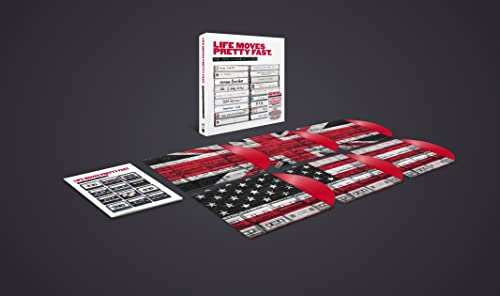
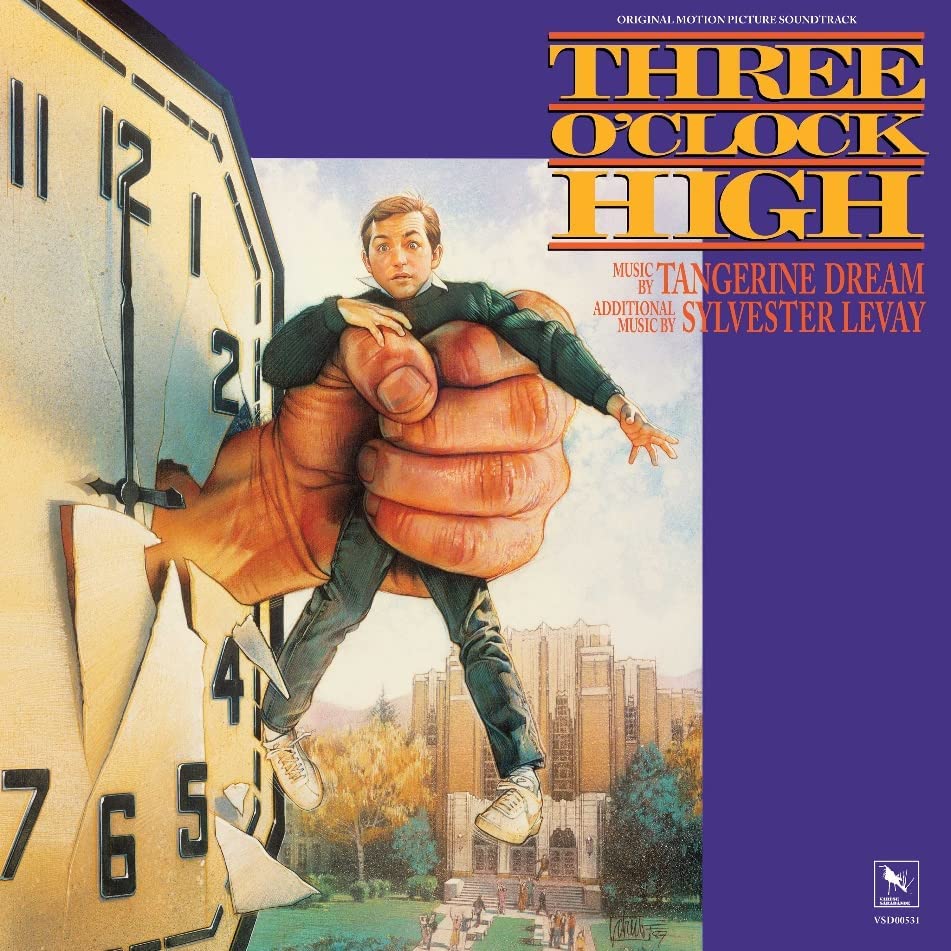
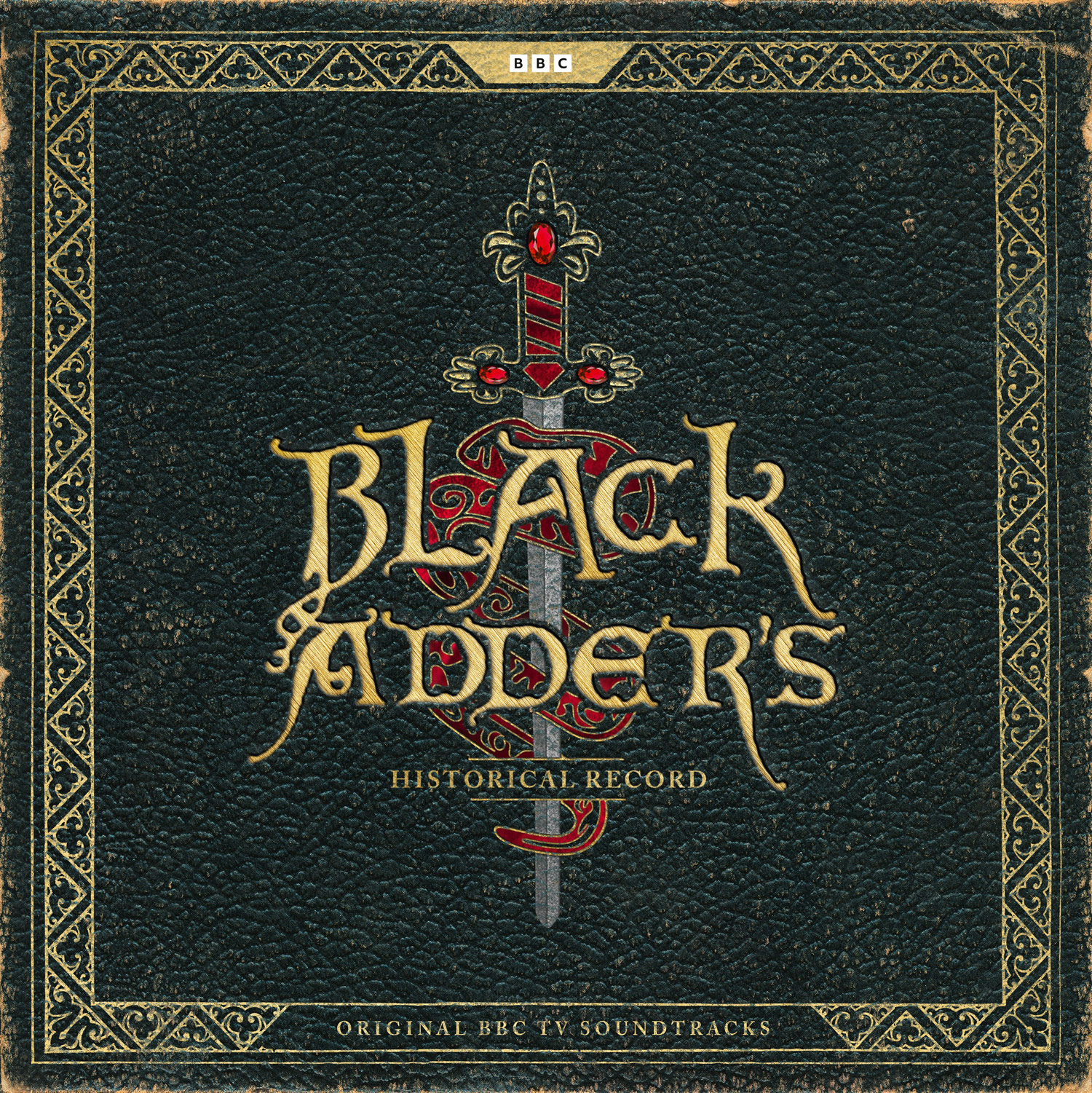
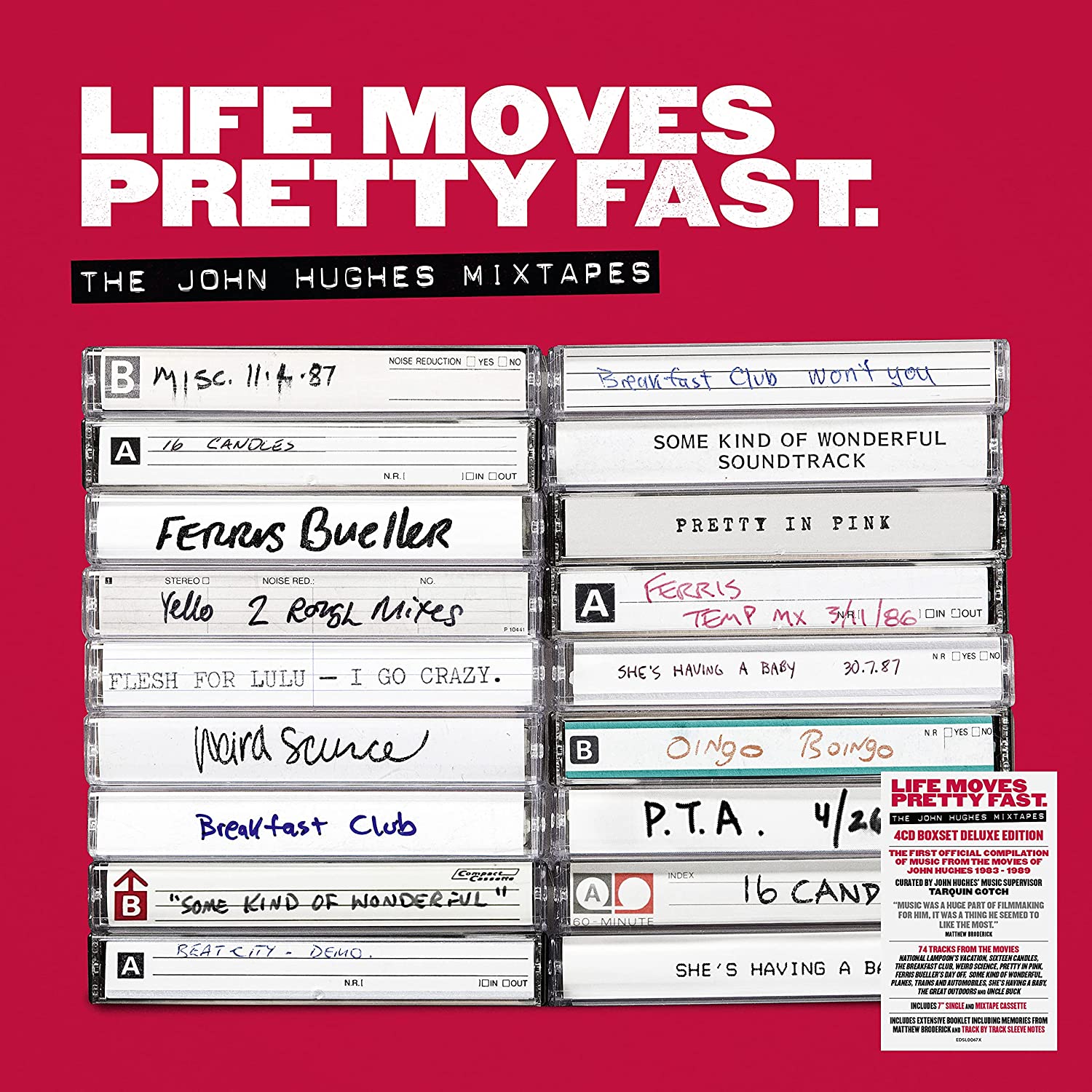
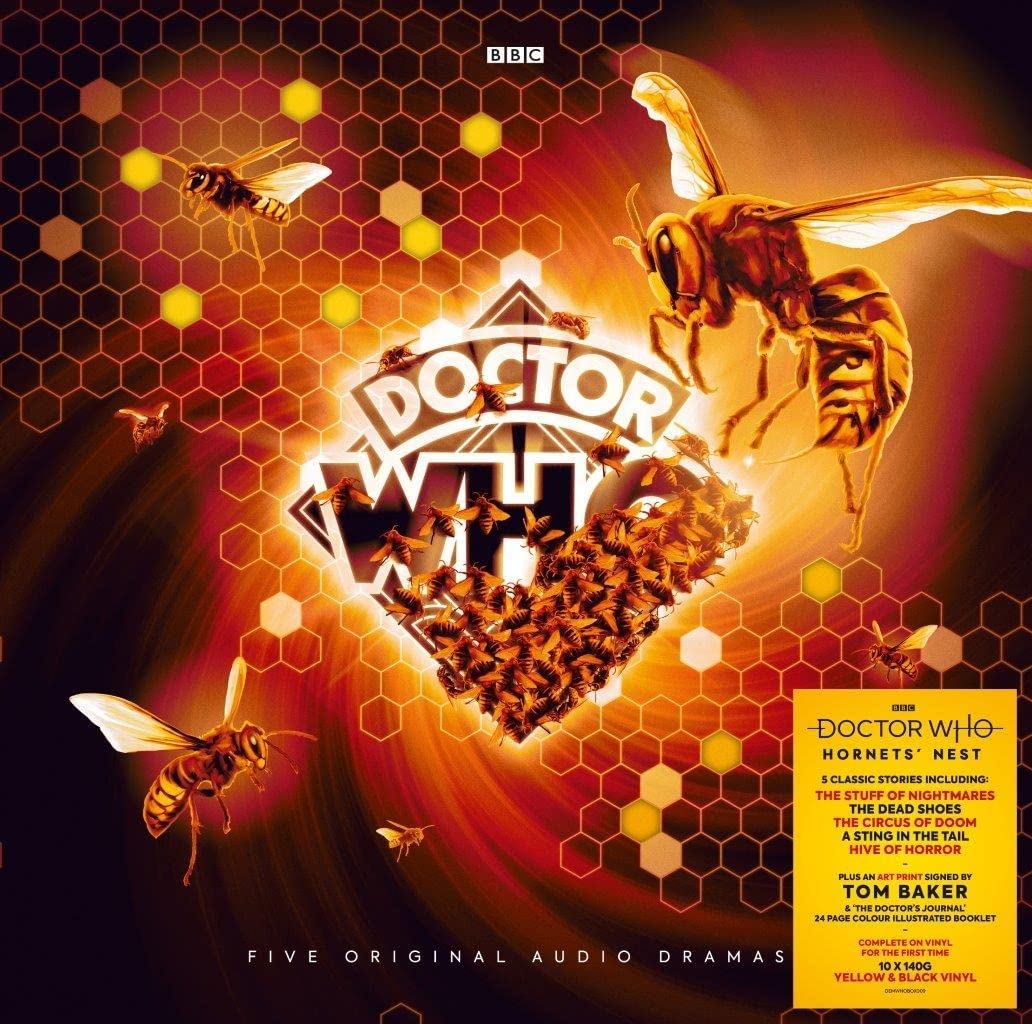
By Paul Sinclair
31